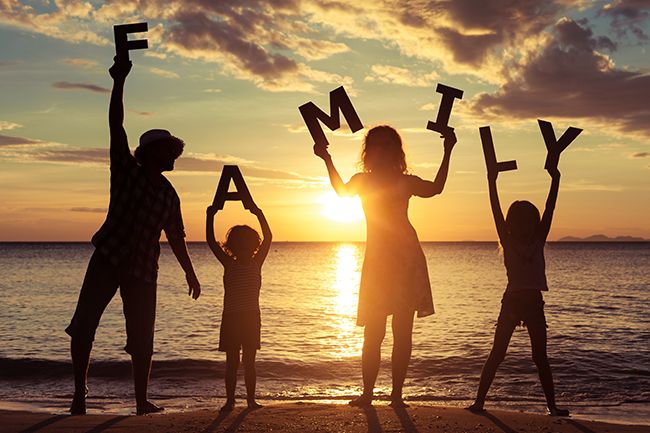Introduction
In the tapestry of human experience, the concept of family is a thread woven with intricate patterns of love, loyalty, and shared history. It is a cornerstone of society, providing individuals with a sense of belonging, support, and identity. However, the definition of family has evolved over time, transcending traditional biological bonds and embracing a broader spectrum of relationships. In this exploration, we delve into the multifaceted nature of family, examining its various forms, the significance it holds in our lives, and the challenges it faces in contemporary society. We will also investigate the intriguing symbol:z3mjablhs0w= and its potential connection to the concept of family.
The Traditional Family Unit
For centuries, the traditional family unit, comprising a married couple and their biological children, has been the predominant model. This structure provided a framework for raising children, sharing resources, and offering mutual support. While this model continues to exist, it is no longer the sole representation of family.
The Extended Family
In many cultures, the extended family, encompassing grandparents, aunts, uncles, and cousins, plays a vital role. This network offers a broader support system, sharing responsibilities, and preserving cultural traditions. The extended family can provide a sense of community and belonging, especially in times of crisis or hardship.
The Single-Parent Family
The rise of single-parent families has become increasingly prevalent in modern society. These families face unique challenges, including financial strain, increased workload, and the demands of parenting alone. However, single parents demonstrate remarkable resilience and create nurturing environments for their children.
The Blended Family
With the increasing rates of divorce and remarriage, blended families have become more common. Combining members from two or more previous families, these families navigate complex dynamics and establish new family traditions. Building trust, open communication, and shared values are essential for creating a harmonious blended family.
The Childless Family
While having children is often associated with family, childless couples or individuals form fulfilling families of their own. These families may focus on their careers, personal growth, or volunteer work. They find joy and companionship in their relationships and contribute to society in meaningful ways.

The LGBTQ+ Family
The LGBTQ+ community has expanded the definition of family to include same-sex couples and their children. These families experience similar joys and challenges as heterosexual families while facing additional societal obstacles. They demonstrate the power of love, commitment, and resilience in building strong family bonds.
The Adoptive Family
Adoption has become a common path to parenthood, creating families through legal and emotional bonds. Adoptive families come in various forms, including single parents, couples, and extended families. These families offer loving homes to children in need, expanding the concept of family beyond biological ties.
The Foster Family
Foster families provide temporary homes for children who cannot safely live with their birth families. These families offer care, support, and stability, creating a nurturing environment until the child can return to their biological family or find a permanent adoptive home. Foster families play a crucial role in the child welfare system.
The Chosen Family
Beyond biological and legal relationships, individuals often create chosen families through deep connections and shared experiences. Friends, roommates, and mentors can become integral parts of one’s support network, providing love, companionship, and a sense of belonging.
The Impact of Technology on Family
Technology has transformed the way families interact and communicate. Social media, video calls, and messaging apps have facilitated connections across distances, enabling families to stay connected even when geographically separated. However, excessive screen time and online interactions can also impact face-to-face communication and family bonding.
Challenges Facing Families Today
Families today face numerous challenges, including economic hardship, work-life balance, and the pressures of modern life. Divorce rates, mental health issues, and substance abuse can strain family relationships. Additionally, societal changes, such as globalization and cultural diversity, present both opportunities and challenges for families to adapt and thrive.
The Role of Family in Personal Development
Family plays a vital role in shaping individuals’ personalities, values, and beliefs. It provides a foundation for emotional development, social skills, and a sense of identity. Strong family bonds contribute to overall well-being and resilience.
Building Strong Family Relationships
Nurturing strong family relationships requires effort, communication, and quality time. Open and honest communication, shared experiences, and acts of kindness are essential for building trust and creating a supportive environment.
The Future of Family
The concept of family continues to evolve, reflecting societal changes and individual preferences. As technology advances and social norms shift, new family structures and dynamics will emerge. Embracing diversity, fostering inclusivity, and prioritizing strong relationships will be crucial for the future of families.
The Enigma of symbol:z3mjablhs0w=
While the meaning of the symbol:z3mjablhs0w= remains elusive, it is intriguing to speculate on its potential connection to the concept of family. Could it represent a hidden code or a secret language used within families to convey deep emotions or shared experiences? Or perhaps it symbolizes the complex and multifaceted nature of family itself, with its intricate patterns and hidden meanings.
Conclusion
Family is a universal human experience, shaped by diverse cultures, traditions, and individual circumstances. It is a source of love, support, and identity, providing a foundation for personal growth and well-being. As society continues to evolve, the definition of family will expand, embracing new forms and relationships. By understanding the multifaceted nature of family and the challenges it faces, we can foster stronger family bonds and create a more inclusive and supportive society.